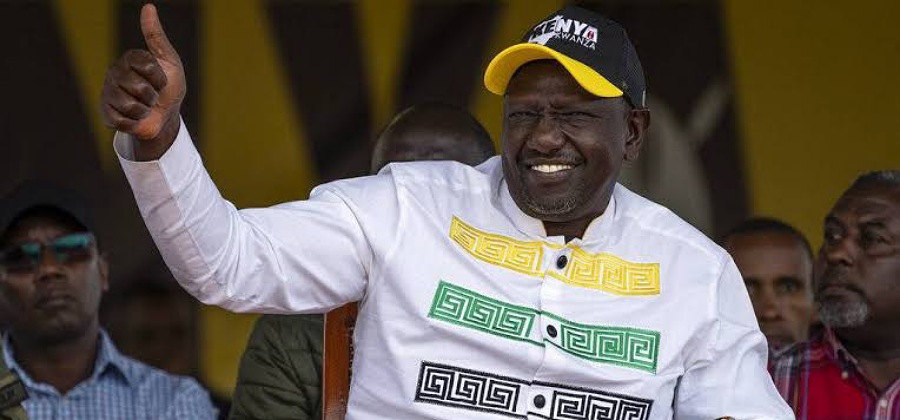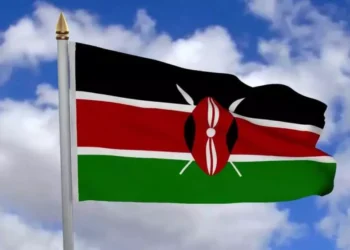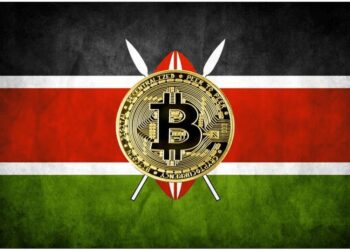It is no longer news that Kenya’s Deputy President, William Ruto, was on Monday declared the winner of the country’s presidential election after polling 50.49% of the votes to beat his closest rival, former Prime Minister, Raila Odinga, who got 48.85% of the votes in a keenly contested election.
However, the announcement of the result by the electoral commission Chairman has not gone with its own drama and controversy as 4 out of the 7 members of the electoral body disowned the result, fuelling fears of violence and anarchy.
Kenya has been on the edge since the announcement of the results as the election outcome sparked protests with supporters of Raila Odinga beginning to protest.
Ruto, who was not backed by his former ally and incumbent President, Uhuru Kenyatta, completes a remarkable rags-to-riches story, with the president-elect reportedly proclaiming himself as the leader of Kenya’s “hustler nation” of young, ambitious, hard-working Kenyans that deserved more.
President-elect records some firsts
The 55-year-old newly elected President of Kenya becomes the country’s first sitting deputy president to succeed the incumbent following competitive elections and the first candidate to win the presidency at first attempt.
Ruto, who had made Kenya’s class divisions the centrepiece of his campaign to become the country’s 5th president, won the election despite opposition from the outgoing president, Uhuru Kenyatta, his former ally who chose instead to support his former arch-rival and long-time opposition leader Raila Odinga.
Although he served as Kenya’s vice president for the past 9 years, the president-elect spent his campaign criticizing the country’s government for not doing more for the poor.
Media campaigns against Ruto
Ruto, who often attacked the country’s ruling class as being dominated by a tiny clique that are noted for their family and economic ties, was also accused by his opponents of being a hypocrite as he was equally a man of means and also had extensive business interests.
They asked people to disregard his rhetoric and his act of trying to fight for the downtrodden or ordinary Kenyans, whom he refers to as hustlers.
Despite his numerous obstacles on his path to victory, the president-elect, prevailed against the state, powerful elites, biased media, the intelligentsia, civil society and resentful polling firms with distorted polls, with his victory being described as historic and phenomenal.
In Kenya’s media, including social media, Ruto was looked at as the villain; the bogeyman. Through newspaper headlines, hashtags, prime-time news and talk shows, he was depicted as someone who was so disliked in Kenya’s politics and solely associated with vices such as corruption, land grabs, impunity, unbridled ambition, insolence, warlord politics, and ethnic cleansing. He exploited this sense of victimhood to his advantage.
His accusers were not any better as these vices usually pervade the political landscape in the largest country in East Africa.
His fight against the ruling class
After his fallout with his former allies and current administration, Ruto described President Kenyatta and Odinga as the embodiments of dynastic politics and entitlement. The two are sons of Jomo Kenyatta and Oginga Odinga, Kenya’s first president and first vice president respectively.
As an outsider in Kenya’s political power play, which is dominated by a tiny clique related by family and economic ties and adept at manipulating tribalism to capture the state, Ruto was pushed out by the establishment. However, he found his way back to the masses, his original constituency by appealing directly to them.
Since its independence in 1963, the political and economic power of Kenya has been confined within a group around the country’s first 2 presidents – Kenyatta and Daniel Arap Moi. Raila Odinga joined this group towards the latter years of Moi’s tenure and counted on it to propel him to power in the just concluded elections. The group has leverage over state agencies and the security apparatus, as well as exploited state power to advance commercial interests spread across different areas of the Kenyan economy.
The president-elect despite joining the establishment with his own economic interest, was able to rebrand himself as being against the status quo and a personification of the hopes for the poor with his message resonating with a cross spectrum of the marginalised.
His populist “man-of-the-people” approach, which rejected political dynasties and played on anti-elite sentiment in the country, endeared him to voters.
Ruto’s rhetoric of hustlers against the dynasties got his a lot of traction that helped him to win the presidential election.
What is the President-elect bringing to the table?
Ruto, who headed the Kenya Kwanza (Kenya First) Alliance, would be confronted with economic and social crisis in East Africa’s most advanced economy, where poor Kenyans already reeling from the impact of Covid-19 have been hit by global rises in food and fuel prices, mass youth unemployment and growing debt.
The President-elect campaigned on bottom-up economic model, with focus on dispersal of economic and political opportunities across board and dignifying the poor. It invokes equity, inclusivity, social justice and fair play.
He noted that the model will be geared towards bringing down the cost of living, eradicating hunger, creating jobs, expanding the tax base, improving the country’s foreign exchange balance as well as inclusive growth.
To achieve this, the President-elect and his team will focus on 6 core pillars namely: Agriculture; Micro, Small and Medium Enterprise (MSME) economy; Housing and Settlement; Healthcare; Digital superhighway and creative economy; Environment and climate change.
His hustler slogan was influenced by mass unemployment, poverty, inequalities and state excesses such as extrajudicial killings and high-level corruption.
He had pledged as president to prioritize Kenya’s economy and uplift ordinary citizens.






















HE WORKED ON THE SENTIMENT AND PSYCHE OF THE PEOPLE TO RIDE TO POWER.
Ruto’s appeal to the downtrodden like our own Aminu Kano of the Talakawa fame. The raw nerves of the underprivileged in any setting and society are fertile grounds for propaganda exploration and exploitations wheels to political office at the highest level.
THE PEOPLE OF Kenya MAY HAVE NOTHAVE LOOKED AT AND OR IGNORED HIS PERFORMANCE WHILST THE VP.
The rhetoric was enough opium for them with the sealable fact of identifying with the poor.
SENTIMENTS AND THE AVERAGE BLACK PERSON ARE SIEMES TWINS AND REASONS WE MAY HAVE TO REMAIN IN THE WOODS FOR A VERY LONG TIME.
We prefer our minds to our heads instead of combination of the two for our advantage and development.
However, the feeler from Nairobi is that it is not yet UHURU.